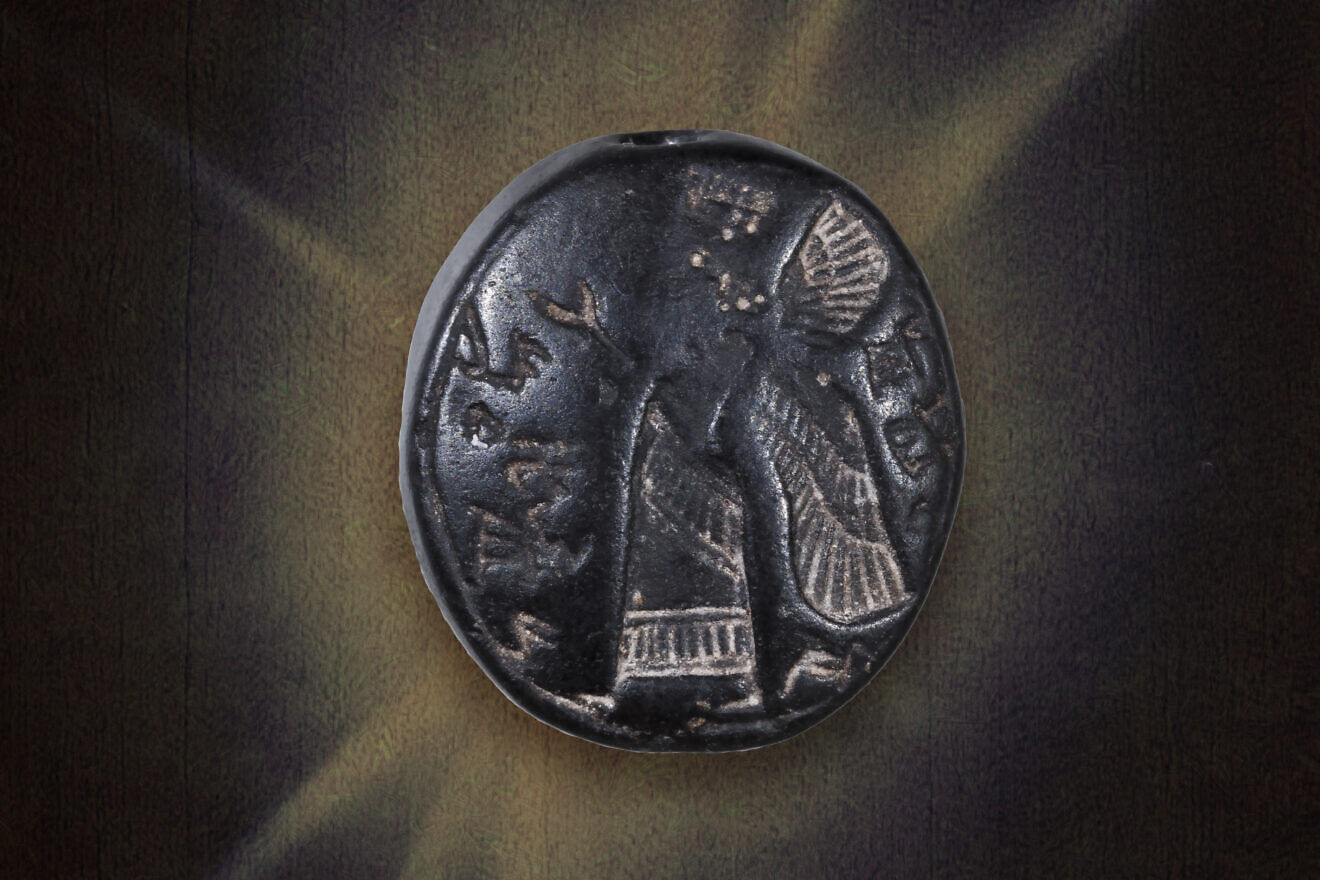Israeli archaeologists in Jerusalem found a 2,700-year-old stone seal last week near the Temple Mount in Jerusalem. It’s just a few inches in diameter, but it’s a big deal for Zionism—and another blow to the Palestinian Arab cause.
The discovery highlights the importance of the continuing work by archaeologists who have spent years sifting through tons of debris that have been dumped outside Jerusalem’s walls by the Islamic authorities who control the mosques on the Temple Mount.
That debris comes from renovations undertaken by Islamic officials on the Temple Mount plaza, the holiest site in Judaism. In callous disregard for the sanctity of the site, the Islamic authorities have been discarding the debris from the renovations as if it were garbage.
There’s been a lot of talk in recent weeks about the “status quo” on the Temple Mount. U.S. State Department officials and angry pundits treat the “status quo” as if it’s holy. They seem to forget that just because something has been the “status quo” for a while doesn’t make it right. For many years, apartheid was the status quo in South Africa, and racial segregation was the status quo in the American South.
The archaeology question is the never-talked-about aspect of the Temple Mount “status quo.” The Islamic officials on the mount have been exploiting their privileged status to bury—literally—the voluminous evidence of the site’s Jewish roots.
Why do the Islamic authorities want to hide the rubble from the renovations? Because the Israeli archaeologists going through the discarded debris continually find pieces of the past that reconfirm the thousands of years of Jewish history in the Holy Land. The project’s work began in 2005 under the auspices of Bar-Ilan University, and their discoveries confirm that the Arab connection to the country is recent and weak.
The stone seal that was just discovered doesn’t have any inscriptions referring to “Palestine.” It doesn’t refer to any indigenous Palestinian holidays, nor does it bear any ancient Palestinian symbols—because none of those things exist.
The writing on the seal is Hebrew, not Arabic. The name written on it is a Jewish name, not an Arab or Muslim name: Yeho’ezer ben Hoshayahu. The black stone seal was found near the Temple Mount’s southern wall,
That name is very similar to the name of one of King David’s warriors mentioned in the Torah. It’s not similar to the name of the warrior of some “Palestinian” king—because there never was such a thing.
It’s also very similar to a Jewish name mentioned in the biblical book of Jeremiah. It’s not similar to any names mentioned in the Quran. As a matter of fact, the city of Jerusalem itself is not mentioned in the Quran either. Isn’t that fascinating? Despite all the platitudes we hear about how Jerusalem is the “city of three ancient faiths,” Jerusalem does not appear a single time in the Quran.
Filip Vukosavovic of the Israel Antiquities Authority said the newly discovered seal, which dates to about 700 BCE, was used by someone who “held a senior position in the Kingdom of Judah’s administration.” Note: Kingdom of Judah, not Kingdom of Palestine.
It was only some 1,400 years after the creation of that seal, in the seventh century CE, that the Muslims of the Arabian Peninsula invaded and occupied the Land of Israel. The Muslim occupiers never called the country “Palestine.”
Altogether, the archaeologists of the Temple Mount Sifting Project have uncovered several thousand items related to the biblical period. And not one of those items—not one—refers to “Palestinians.”
No wonder the Islamic religious authorities treat the debris from their renovations as garbage. They know that every scoop of dirt can reveal additional evidence that the rightful owners of Jerusalem and the Land of Israel are the Jews.
The Islamic officials on the Temple Mount would like to hide the past. Fortunately, however, Israel’s archaeologists have come to the rescue—that is, the rescue of Jewish national history. In the course of fulfilling the noble scientific purpose of archaeology, they are reaffirming the deep roots of the Jewish people in the Holy Land.


























